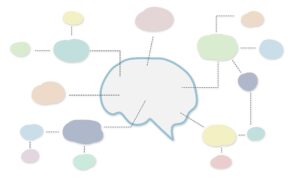Reducing the Potential of Product Failures
This early validation helps reduce risk, minimize failures, optimize resource allocation, and ultimately increases the likelihood of a successful product launch. Early concept testing can also help gather feedback and address any potential concerns or issues.
In Fuel Cycle’s “Why Concept Testing is Important in New Product Development,” the company outlines some of the key benefits to this part of the innovation process:
1. Reduces Risk: One of the primary reasons concept testing is important in new product development is its ability to mitigate risks. Launching a new product is a costly and time-consuming process. Without thorough testing, companies run the risk of investing heavily in a product that may not meet market demands or expectations. Concept testing allows you to identify potential issues early in the development cycle, such as flaws in the concept or misunderstandings about the product’s purpose.
2. Validates Assumptions: New product development often involves assumptions about what the market needs and wants. Concept testing serves as a reality check, helping to validate these assumptions. It provides tangible data and feedback from real consumers, offering a clear picture of whether your concept aligns with the desires and preferences of your target audience.
3. Enhances Market Fit: Understanding your target market is crucial in developing a successful product. Concept testing allows you to fine-tune your product concept to better align with market needs. By identifying what aspects of your concept resonate with potential customers and what doesn’t, you can make the necessary adjustments to enhance market fit.
4. Improves Marketing Strategies: Effective marketing is vital for the success of any new product. Concept testing can provide insights into which marketing messages, features, or benefits resonate most with your audience. This information is invaluable in crafting compelling marketing strategies that will attract and engage potential customers.
5. Drives Innovation: Concept testing doesn’t just identify potential issues; it also encourages innovation. As you gather feedback and make improvements based on the data you collect, you can refine your product concept and make it even more compelling and innovative. This iterative process fosters a culture of continuous improvement within your organization.
More Innovation Resources
Strengthening Product Concept Testing
At TMRE 2024, Ben Harknett, CEO at Cambri, presented the session, “Are KPIs & Benchmarks Really Doing a Good Job of Predicting Product Concept Strength?” Many product launches often fail, and it’s accepted as part of the nature of innovation. But does it really need to be that way? Cambri asserts that by utilizing AI you can now combine quant, qual, and in-market data to deliver more accurate and actionable insights—and from there enhance the product concepts that will succeed.
Aiming for Continuous Concept Improvements
When concept product testing, it’s key to employ a data driven, insights focused approach. Fuel Cycle advises that defining your target audience, setting clear objectives and choosing the right methodology and testing platform is important. Lastly, data collection is a key task but it’s the data analysis and deriving key insights that can help improve your concept and product iteration, leading to a cycle of continuous improvement.
In Dig Insights’ “5 Best Practices for Concept Testing,” the company further expands upon tactics that can help the product development process. For example, engaging with key stakeholders during the process might involve sales, marketing, and customer service to ensure concepts solve real problems and align with business needs.
Another tip from Dig Insights is to treat underperforming concepts as learning opportunities: “Not every idea will shine, but even low-performing concepts provide valuable insights. Instead of discarding them, ask why they failed. Could they work with a different demographic? Would a small tweak change perceptions? Iterative testing allows you to refine weaker ideas and compare them to top performers, unlocking fresh opportunities.”
Video: “Product Testing Innovation: Evolving from CLTs to Real-World Learnings,” courtesy of Highlight.
Contributor
-

Matthew Kramer is the Digital Editor for All Things Insights & All Things Innovation. He has over 20 years of experience working in publishing and media companies, on a variety of business-to-business publications, websites and trade shows.
View all posts





















































































































































































